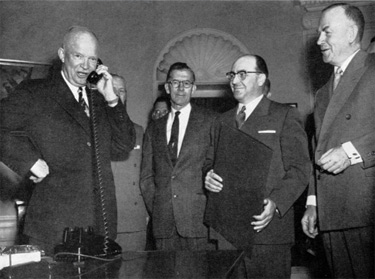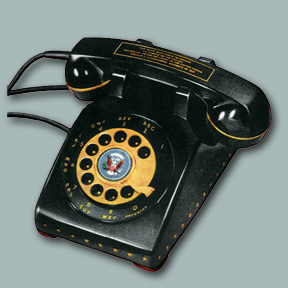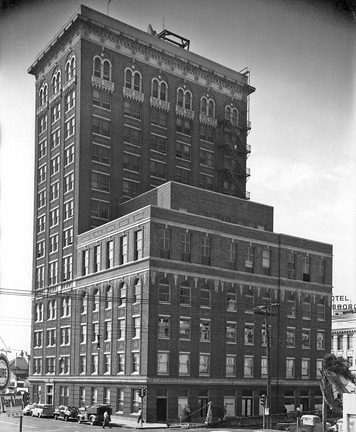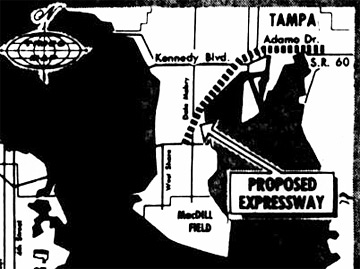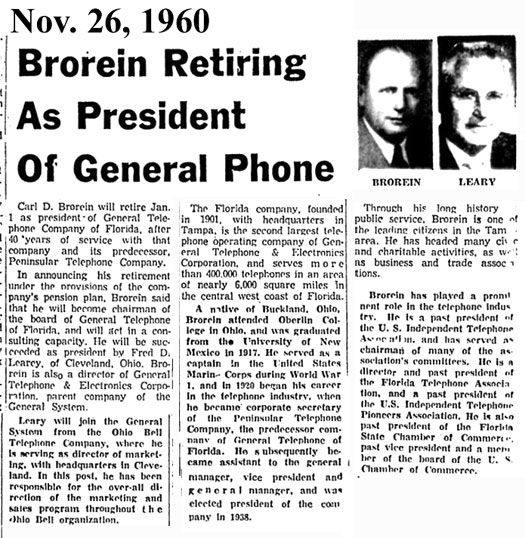|
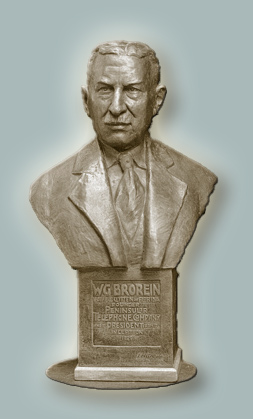 |
William Gebhard Brorein
For over half a century, William G. Brorein was one of
the most prominent characters in the development of Tampa, and a recognized leader in all matters
pertaining to its moral and social standing, as well as public progress. During
his
time, in addition to the duties of conducting the affairs of Tampa's most extensive
public utility enterprise, he was a leader of nearly every organization conducted for the general public welfare.
One of the most influential and valuable citizens of Tampa, W.G.
Brorein was a son of Gebhard and Sophia (Gracely) Brorein.
He was one of several children, born on a farm near
Marion, Ohio, on October 30, 1861. When he was five his parents moved from there
to Logan, Auglaize County, Ohio, where they resided during his boyhood and where
he helped to clear his father's farm while
attending the district school during the winter.
In the spring and summer of 1879, he attended the Ohio Norman University at Ada,
after which he taught during the winter and attended the summer terms of that
school until 1883, when he was elected superintendent of the Cridersville
schools, a position he held for three years. During his residence at
Cridersville he held his first office, being elected a member of the village
council. In 1886 he went into the mercantile business with W. H.
Butcher at Buckland, Ohio, where he engaged in general merchandising,
manufacturing and the oil business until 1901. On
October 29, 1883, Brorein married Sarah E. Butcher at Wapakoneta, Ohio, and they
had one daughter, Edna.
|
|
Bronze bust of W.G.
Brorein
W.G. Brorein, Notable Citizen of Florida, Founder Peninsular Telephone
Company and its President since its inception, 1929
(1929 refers to the date of the bust.) |
|
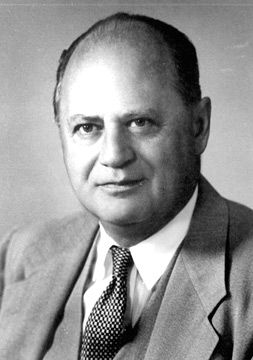
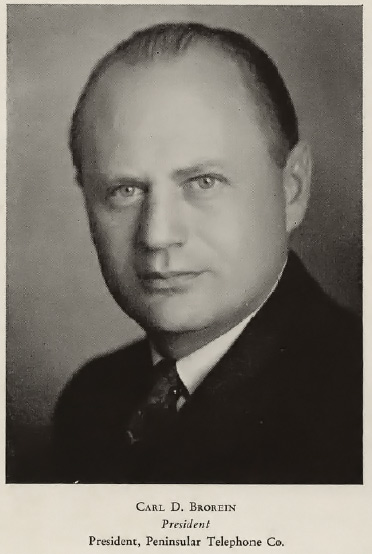
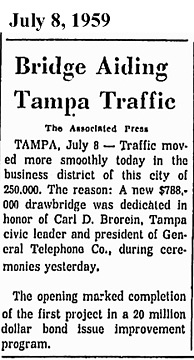
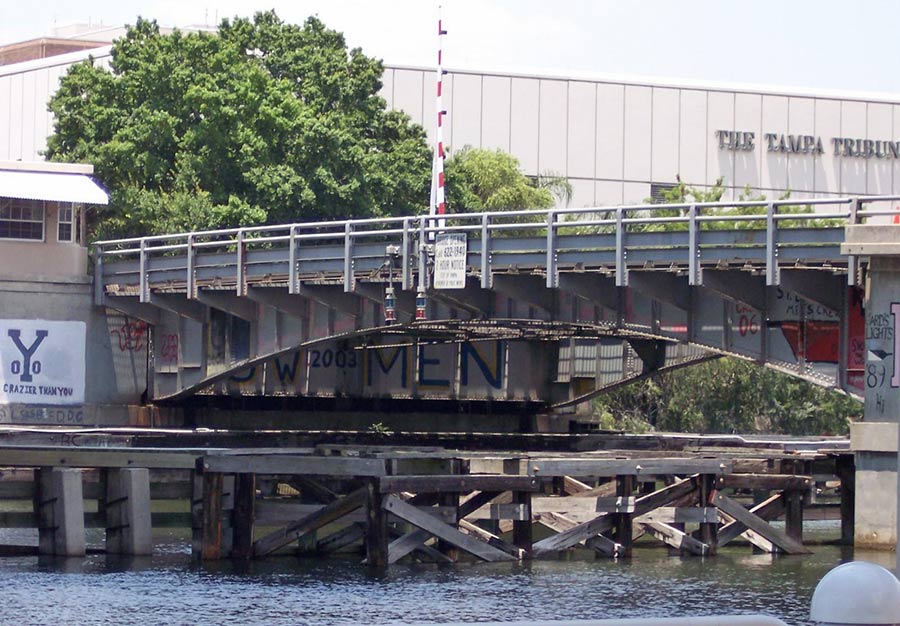
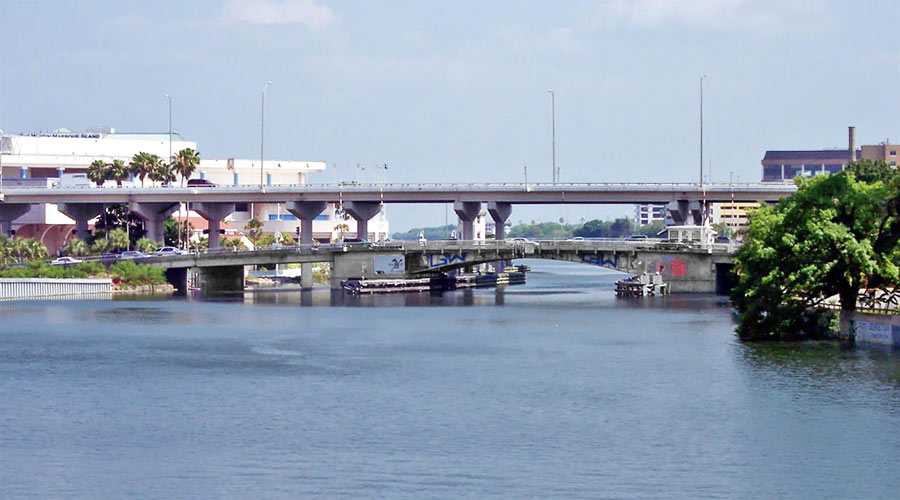

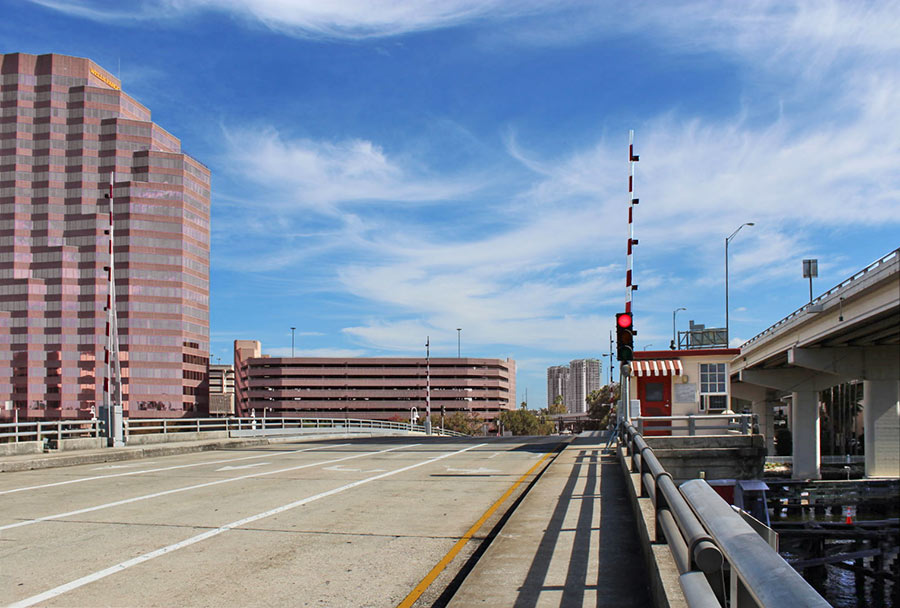
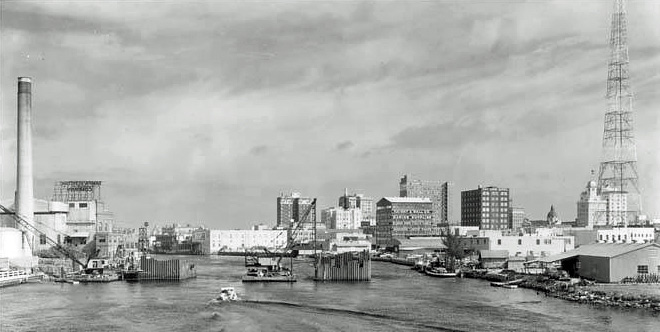
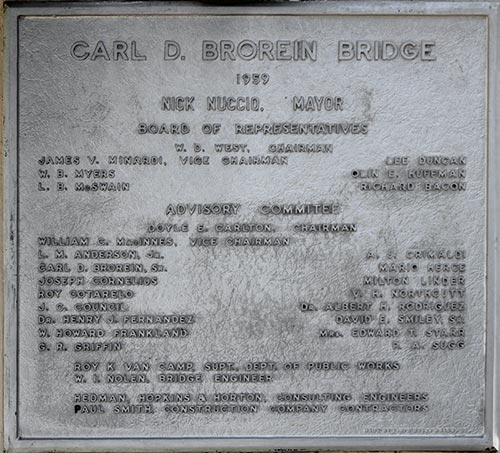
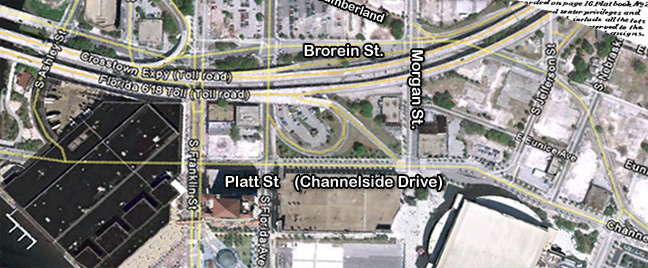

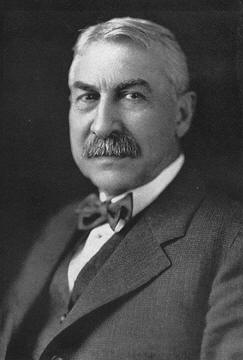
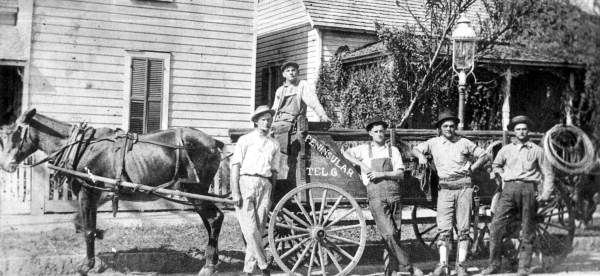
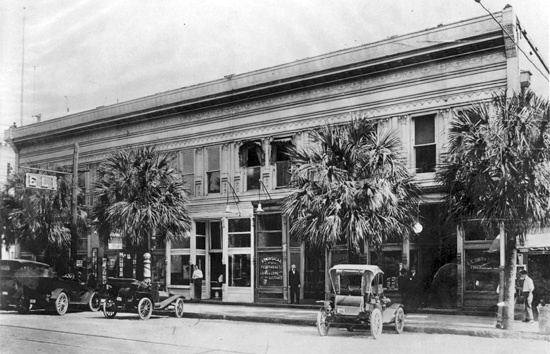
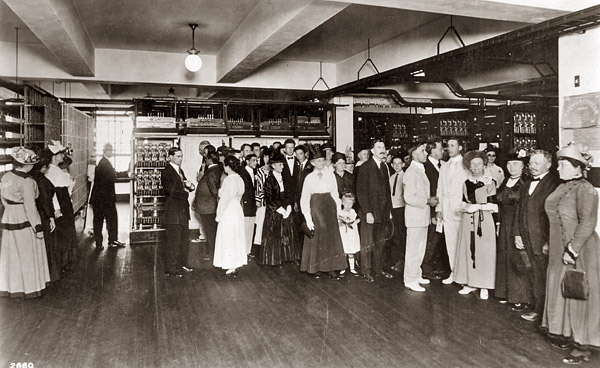
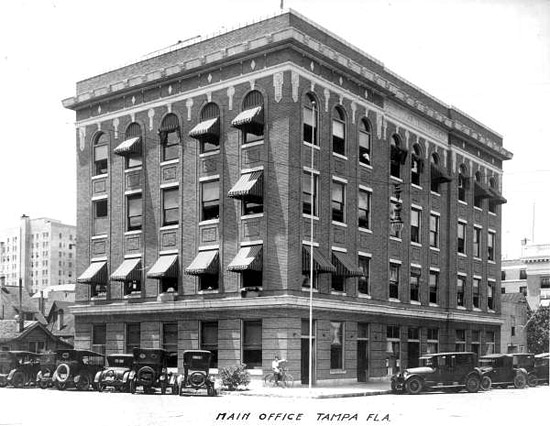
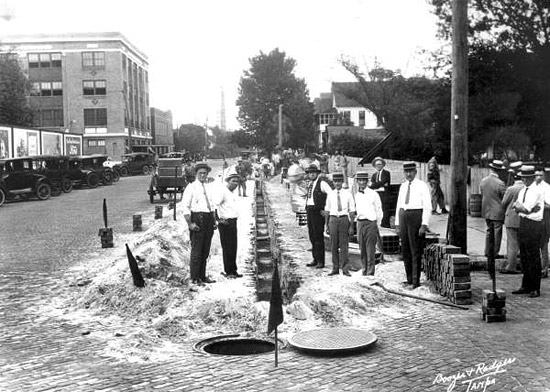
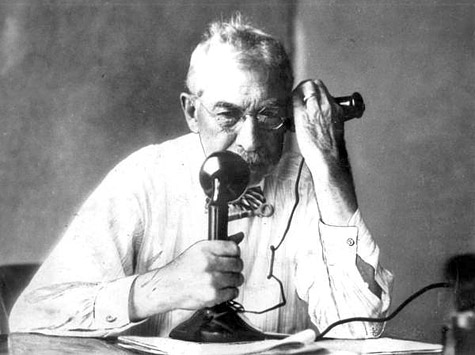
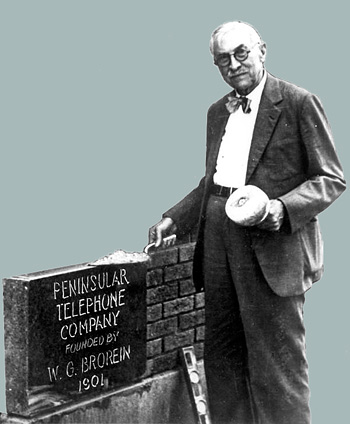
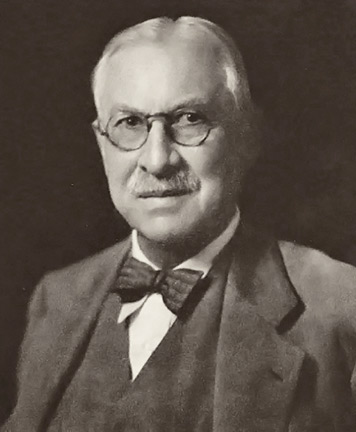
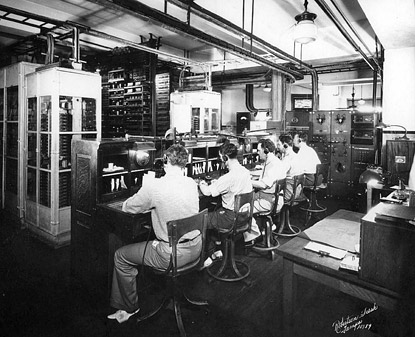
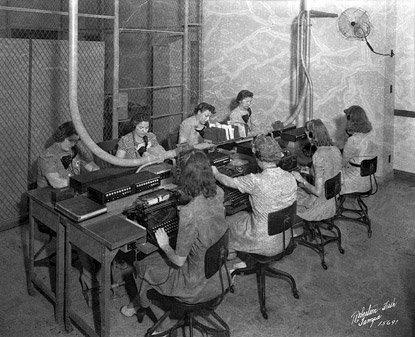
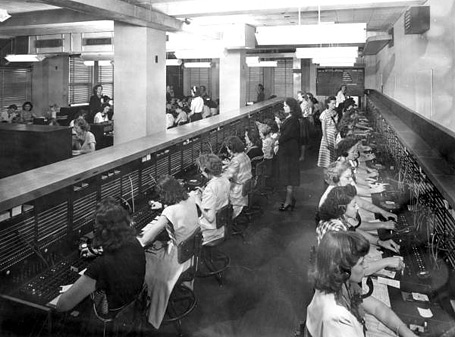
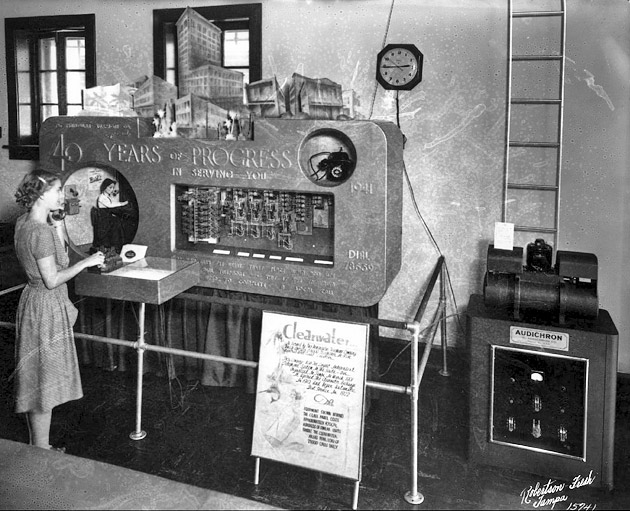
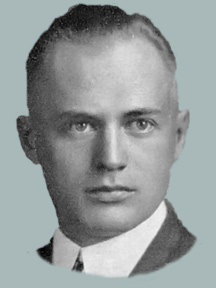
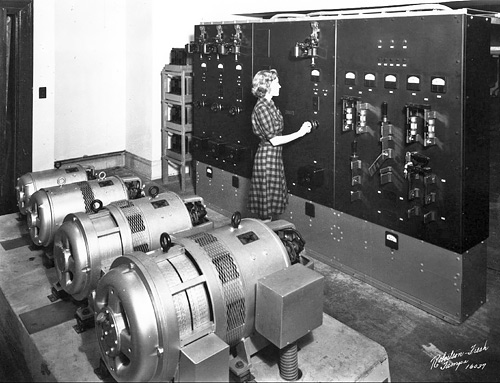
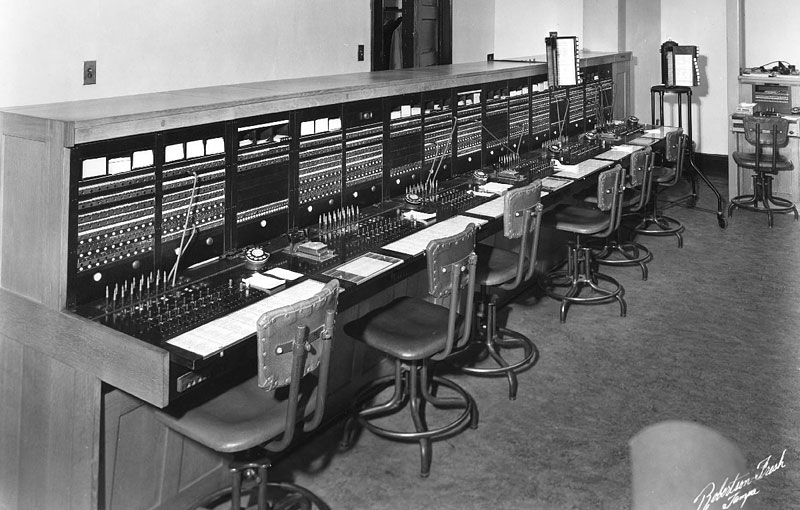
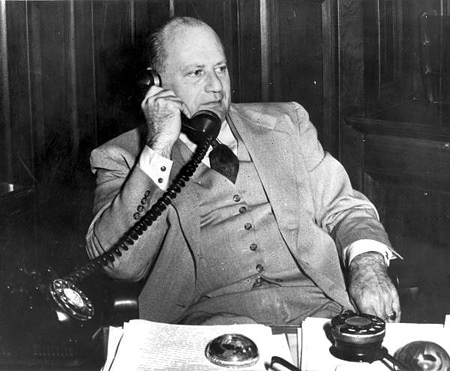
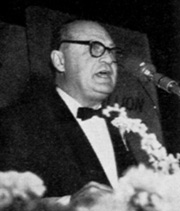 of
the FCC Rosel Hyde, and president of the National Assoc of Railroad &
Utilities Commission C.L. Doherty. To the right of the president are
Doherty, Clay & Craig.
of
the FCC Rosel Hyde, and president of the National Assoc of Railroad &
Utilities Commission C.L. Doherty. To the right of the president are
Doherty, Clay & Craig.